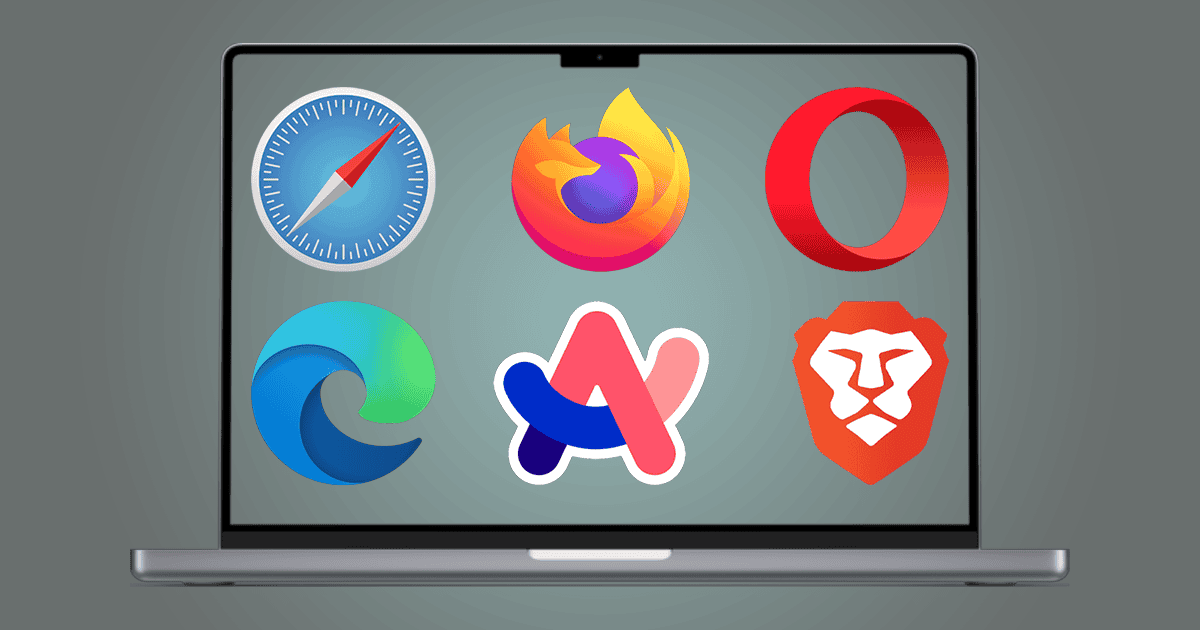Ever since I updated my MacBook, I’ve been enjoying all the amazing new features on macOS 15 Sequoia. However, I did notice a drop in my battery life. And upon further inspection, I realized that the culprit was actually Google Chrome. Like almost 65% of the world, Google Chrome is my primary web browser. Although it has several strong suits, it sucks up juice pretty fast.
As it turns out, the choice of browser you use can significantly impact how long your Mac stays powered on. Whether you’re a student, working professional, or casual user, I’ve compiled a list of the best web browsers that you can use on your macOS device to maximize battery life. Even if you’re not updated to macOS 15 yet, these browsers can still ensure your laptop keeps the lights on for longer.
Best Browsers to Maximize Battery Life on macOS 15
Each of these browsers comes with unique features of their own while ensuring they use fewer system resources for the best battery backup. While some are Chromium-based, others use different engines, so shifting can be a tedious task there. Thankfully, all of these browsers are free, so you can try them first, and then make the choice to commit to the one you like.
1. Safari
When it comes to optimizing battery life on macOS, Safari is the undisputed champion. Apple’s own web browser is designed specifically to work seamlessly with its hardware, minimizing resource usage and maximizing power efficiency. In fact, one of the main reasons to use Safari is its deep integration with macOS. This allows it to leverage system-level optimizations that third-party browsers just can’t match.
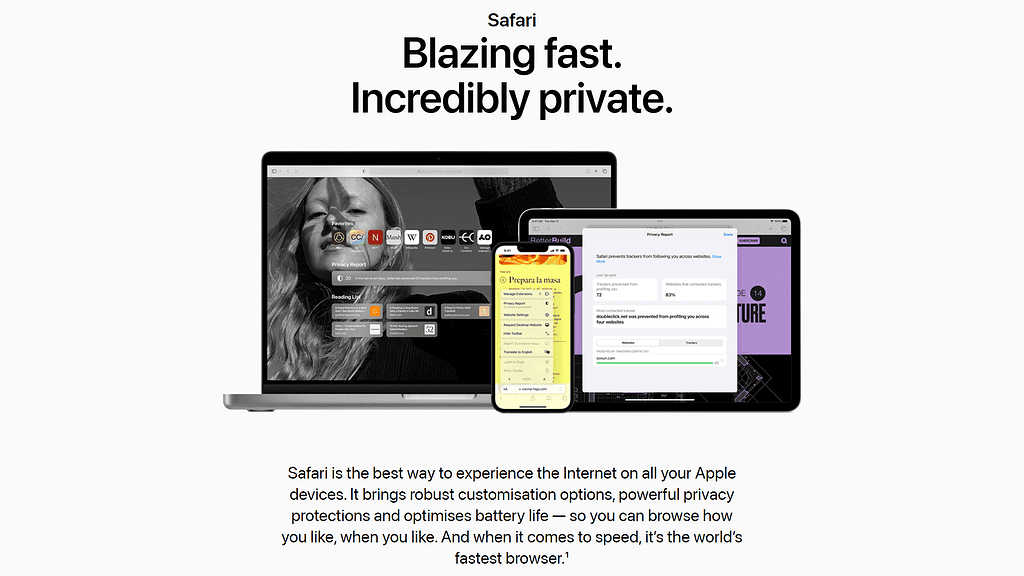
But that doesn’t mean you should be compromising on features. Beyond raw battery life, Safari offers a clean and user-friendly interface that looks really good on macOS. It also includes features like intelligent tracking prevention. Not only does this protect your privacy, but it also reduces the load on your Mac by blocking unnecessary scripts and trackers. Additionally, while the number of extensions isn’t as high as Chromium-based browsers, Safari still supports most essential extensions you’d want to use.
2. Opera
Opera is a versatile browser known for its built-in features and efficient performance. Opera has a loyal following thanks to its unique offerings and consistent improvements. One of Opera’s standout features is its built-in VPN, which enhances privacy and security without the need for additional software. While I do recommend using a dedicated VPN like Proton for the best security, Opera’s free VPN works fine for simple tasks.
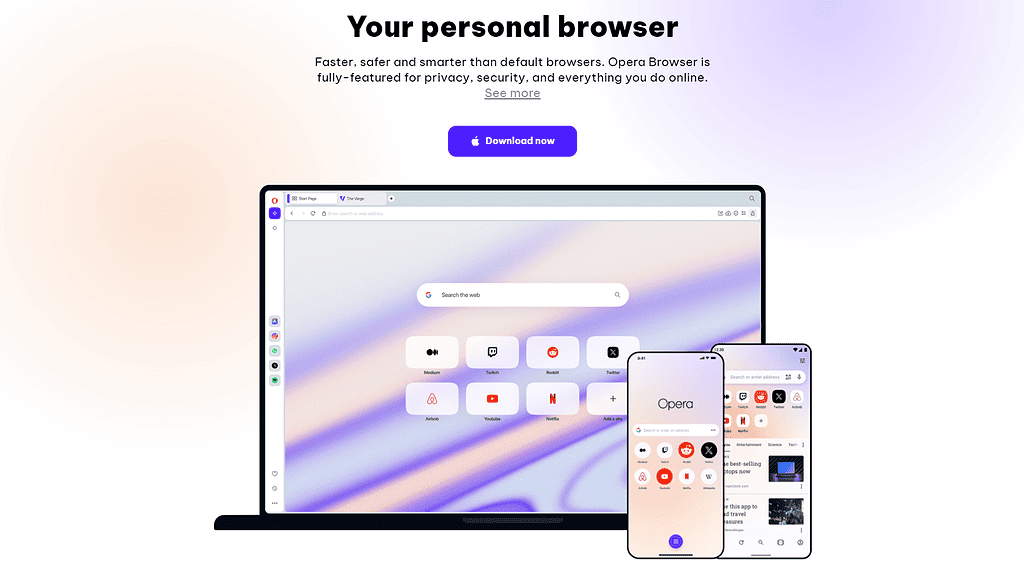
While a built-in ad blocker is something that other browsers also offer, Opera also comes with a unique Turbo mode. The way it works is that it compresses web pages, making them load faster and consume less data. That’s super handy when you’re on the move, and are using your mobile data instead of a free Wi-Fi. And true to the title of this article, Opera offers all these features while still being efficient on your Mac’s battery.
3. Mozilla Firefox
Known for its commitment to user privacy and security, Mozilla Firefox is a powerful alternative to Safari. It traditionally used more battery than Safari, although recent improvements have narrowed the gap. In fact, Firefox’s Quantum engine, which was introduced a few years ago, substantially boosted both speed and efficiency.
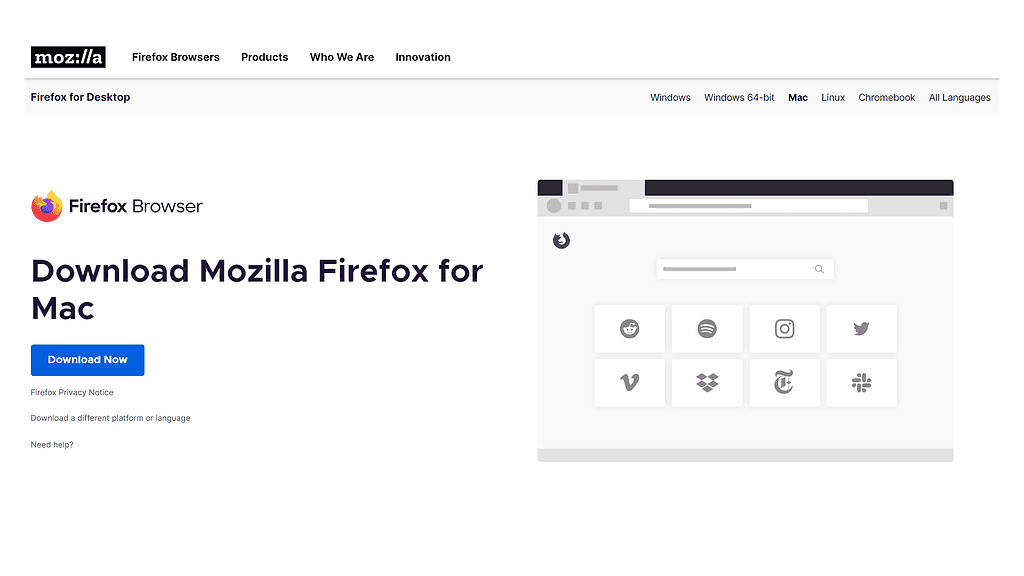
Firefox offers a wide range of customization options, allowing users to tailor the browser to their specific needs. It was also one of the first browsers to introduce extensions support, which are called add-ons in the Firefox environment. Whether you’re a security buff who requires advanced tracking protection or a busy multitasker in need of productivity tools, there’s likely an extension to enhance your browsing experience.
Firefox is also available for all smartphone users, and other platforms. So once you migrate to Firefox, you can set up Mozilla Sync to have your data synced across all devices.
4. Arc Browser
Arc Browser is a relatively new player in the macOS browser game, but it’s quickly gaining traction for its focus on efficiency and privacy. It’s built on the same Chromium engine as Google Chrome and ensures seamless compatibility with all of Chrome’s extensions. However, it has been designed with modern web users in mind and offers a more organized and productive browsing experience. The thing I admire the most about Arc is its minimalist and distraction-free interface. It genuinely helps users focus on their tasks without being overwhelmed by tabs and notifications.

There are also unique features like tab grouping and workspace management. Additionally, Arc includes a built-in ad blocker and tracking protection features too. The browser also integrates seamlessly with popular productivity tools like Slack and Todoist. This makes it a great choice for multitasking users who value a streamlined workflow. Despite being relatively new, Arc is one of the most efficient browsers for macOS.
5. Microsoft Edge
I’ll be honest, Microsoft Edge is my default browser on my Windows PC. Not just because Microsoft heavily promotes it, but because I genuinely admire it. And it’s also my go-to browser on my MacBook now. Based on the Chromium engine, Edge combines the best of Google’s Chromium performance with Microsoft’s enhancements. All of this results in a fast and battery-friendly browsing experience.
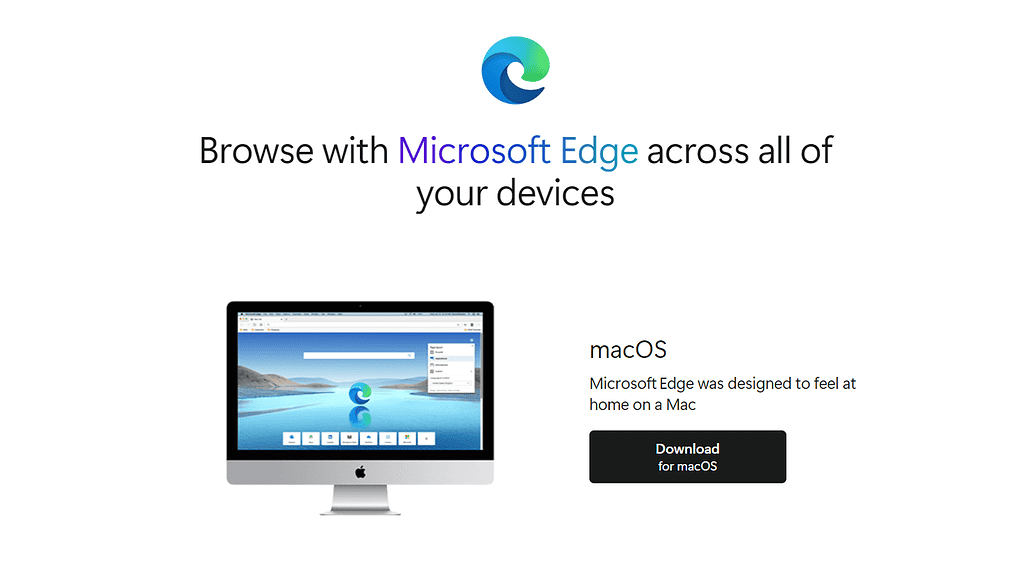
One of my personal favorite features is Edge’s sleek and user-friendly interface with helpful features like a built-in reading mode for a more focused reading experience. Edge also includes features like tracking prevention, which helps protect your privacy and reduces the load on your system by blocking unnecessary trackers. If you’re looking for a browser that offers a great balance of performance, features, and battery efficiency, Microsoft Edge is a solid choice.
6. Brave Browser
If you’re someone who prioritizes privacy alongside battery life, Brave Browser is for you. Based on the Chromium engine, Brave offers a familiar browsing experience while blocking ads and trackers by default. By blocking unwanted content, Brave reduces the load on your Mac, resulting in longer battery life. Brave also includes features like HTTPS Everywhere and script blocking, which further enhance security and performance.
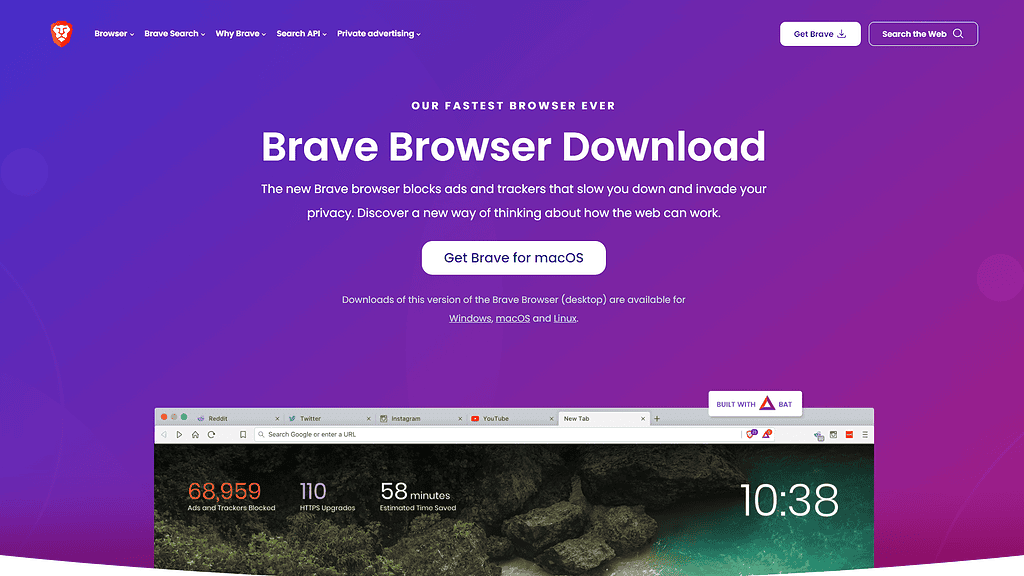
There’s also a built-in cryptocurrency wallet and support for decentralized web applications, although that’s mostly for tech-savvy users. For mainstream users, Brave remains a lightweight and fast web browser that works very well on macOS. Similar to Opera, Brave does offer its own VPN as well, but that’s only for premium users. That said, you can use Leo, its AI tool, for free, from the sidebar itself.
Regardless of which browser you end up using, each of these options offers unique features while ensuring great battery life for your Mac. Safari is still the undisputed battery champion, but there’s no harm in exploring other browsers.
